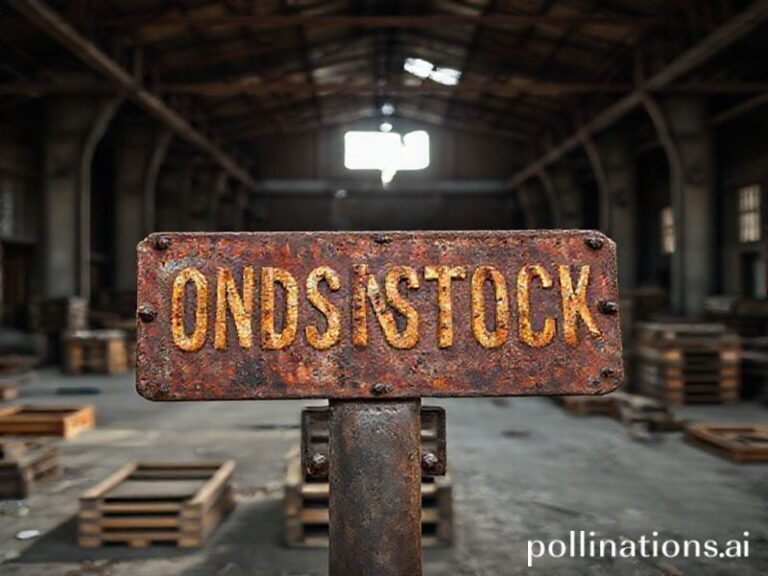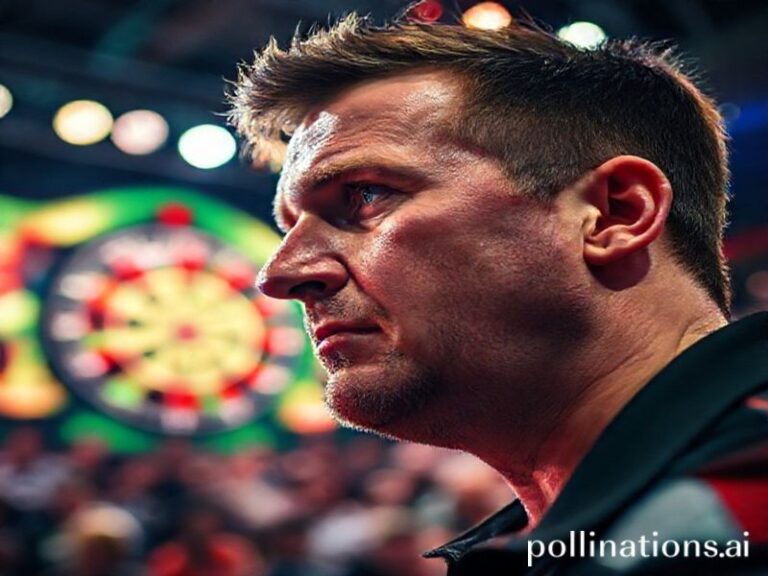From Norwich to Netflix: How Jacob Murphy Accidentally Became a Geopolitical Shipping Container
Jacob Murphy and the Quiet Art of Being a Global Nobody
By Our Man in the Cheap Seats, Somewhere Over the North Sea
There is a moment, somewhere around the 78th minute of a Thursday-night Europa Conference League tie, when Jacob Murphy collects the ball on the touchline and 32,000 Geordies exhale as one. In that same instant, a bleary-eyed commodities trader in Singapore glances at a score-ticker, a São Paulo taxi driver skips past the match on illegal IPTV, and a teenager in Lagos tweets “Who dis Murphy guy sef?” The world, in its usual indifferent way, does not stop. Yet for those three seconds, the modest winger from Wandsworth becomes a node in the planetary nervous system—proof that even the most parochial English footballer can be, for the length of a heartbeat, internationally significant.
Murphy is not Mbappé. He is not even the best Murphy; at last count there are approximately 1.4 million Murphys on LinkedIn, several of whom can also trap a ball without spraining an ankle. What he is, however, is the perfect emblem of globalization’s cruel meritocracy: good enough to be exported on a 4K stream to Jakarta, not good enough to warrant the bandwidth of a proper highlight reel. He is the human equivalent of a shipping container—utilitarian, replaceable, quietly circumnavigating the world while no one bothers to read the manifest.
Consider the supply chain: a boy developed in the Norwich City academy—an institution whose greatest export is schadenfreude—gets sold to Newcastle United, a club now owned by a sovereign wealth fund that could purchase Belgium if it ever ran a surplus. PIF’s marketing department insists the takeover is about “sportswashing,” but let’s be honest: it’s mostly about ensuring that, come 2030, Jacob Murphy’s left-footed cross will be beamed into every Marriott lobby from Dubai to Detroit, accompanied by a tasteful ad for Sela, the Saudi events company whose logo adorns his chest like a postmodern scarlet letter. The man himself merely runs up and down the wing, blissfully unaware he is a floating signifier in a geopolitical pissing match.
The global implications are as subtle as a drone strike. Every time Murphy nutmegs a Bulgarian full-back, soft power accrues to the Kingdom, the Premier League’s broadcast rights inch up another decimal place, and an unpaid intern in Riyadh updates a KPI spreadsheet labelled “Cultural Relevance Index.” Meanwhile, the planet keeps warming, but at least the spreadsheets are colour-coded.
Back home, the English tabloids treat him as a plucky underdog story: local lad makes good, keeps head down, doesn’t shag teammates’ girlfriends. Abroad, the narrative mutates. In China, he’s the face of a mid-tier gaming app (“Murphy Run: Wing-Wizard Saga”). In Argentina, he’s a meme—side-by-side with a llama wearing the same hairstyle. Somewhere in the metaverse, a bored Norwegian has minted an NFT of Murphy’s shin pads; bidding is stuck at 0.04 Ethereum, roughly the cost of a pint in Oslo.
And yet, for all the algorithmic reach, the man remains stubbornly analogue. He still drives a second-hand Range Rover, still calls his mum after away fixtures, still looks faintly surprised every time he scores. There is something almost heroic in that refusal to become a brand. Or perhaps it’s just a failure of imagination; global capitalism hasn’t yet figured out how to monetize decency.
The broader significance? Murphy illustrates the great 21st-century paradox: never have more people been able to watch a solitary Englishman do something ordinary, and never have they cared less. We are all simultaneously closer together and more alone, like commuters sharing a silent Tube carriage, each lost in the same football app, each convinced the others are the problem.
So when Jacob Murphy trots out at the San Siro next month, remember this: somewhere a data centre in Iceland is cooling itself with glacial meltwater just so a Finnish teenager can type “murphy trash lol” into a Twitch chat. Civilisation endures. Barely.







